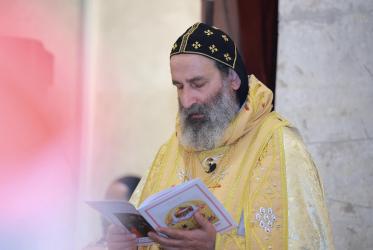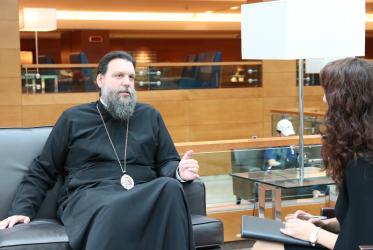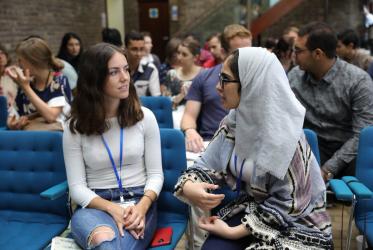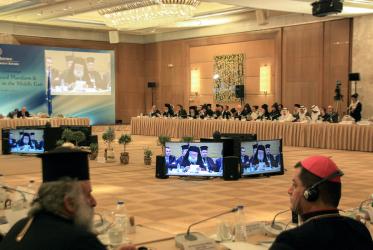Displaying 1 - 20 of 22
Fr Alexi - a peacemaker in Syria
21 December 2018
In Syria and Iraq, minorities must come out of the darkness
28 November 2016
WCC/UN conference calls for coordinated action on refugee crisis
20 January 2016
International conference addresses challenges in the Middle East
22 October 2015
WCC urges responsibility for and support to the refugees in Europe
04 September 2015
Christians around the world pray for unity
22 January 2015
Momentum builds for ban on nuclear weapons
16 December 2014
WCC general secretary speaks on reality of wars at Sant’Egidio meeting
12 September 2014













